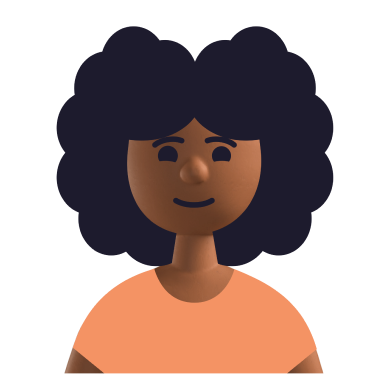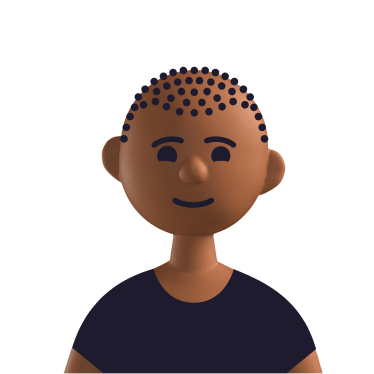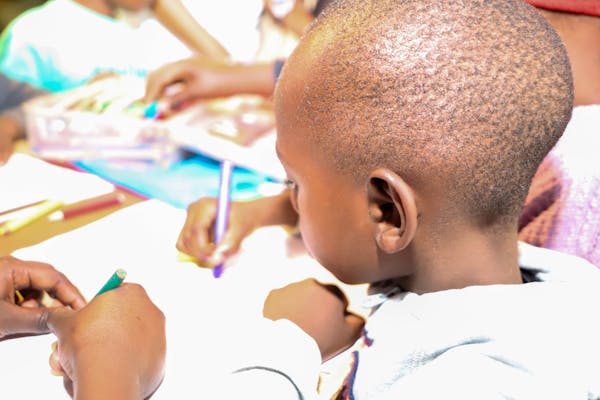

Time to Play

Time To Play
Terre des Hommes Netherlands in partnership with Action for Children in Conflict (AfCIC) are implementing the Time to Play project. This is a two-year project whose overall goal is to contribute towards the creation of a safe environment for children aged 5-17 to play, learn, experience, and express themselves in Kiambu County, Kenya.
Background
The population of Kenya is estimated at 47.6 million, according to 2019 census data, with 21.9 million (46.1%) being children. 18.3 million are children of school age. In 2020, nearly 10.2 million students were enrolled in primary schools. The number slightly increased from approximately 10.1 million in the previous year. Primary education in Kenya begins at the ages of 5-7 years old. According to the UNESCO Institute of Statistics report (2021), nearly 1.8 million children and adolescents aged 6-17 years are out of school.
Pupils are faced with the burden of long school hours without breaks to enjoy play and evenings are occupied by homework that stretches into the night.
Kenyan urban areas are poorly planned, leaving no space for safe and child-friendly play.
Violence and crime are a daily reality of the target beneficiaries who live in low-income settlements and street situations.
Abuse and exploitation of Children in Thika Kenya’s former industrial hub is rampant (according a recent report by Childline Kenya, between October and December 2021 there were 391 cases of Child abuse reported from different parts of Kiambu County, 116 were of child neglect, 100 physical and 76 sexual abuse). This is attributed to the fact that the town is a few minutes’ drive from Nairobi meaning that most of the problems of the big city end up being sorted out in Thika.
Thika also happens to be the center for people arriving from Somalia, Ethiopia, Kenya’s Rift Valley, Eastern, Northern and Central regions bringing in thousands of people from the countryside who do not have means of income and thus exposing Children to exploitation. With the incoming population cultural dynamics are introduced to the local people in terms of language, norms, values and practices (cultural diversity). Potentially, this exerts some tension with regard to co-existence and difficulties embracing diversity. If not checked, ethnicity and ethnic tensions are bound to emerge which would have negative effects on children. Established as an agricultural town over a hundred years ago, the town thrived during the coffee boom in the 70’s; however, in recent years, all the migrant communities from all over East and Central Africa who were working in the coffee plantations have been rendered jobless, another scenario that has aggravated the abuse and exploitation of Children.
Recent economic melt-down as a result of COVID-19 among other causes, unemployment, internal displacement, domestic violence and poverty have all contributed to the existence of a very unsafe abusive and exploitative environment for Children. At the same time, there are no facilities, spaces or services where vulnerable children would access support and recreation, popular reading, and peer interaction, lacking thus the “being a Child” opportunity.
Due to the harsh economic times and the fact that parents/caregivers have to fend for the family thus leaving most Children at home on their own and at the mercy of abusers who take advantage of the absence of parents/guardians. They entice the children with food in order to sexually abuse, physically molest them with some of the children disappearing never to be seen again.
Much as the government has prohibited extra tuition, the school schedule is yet another hostile impediment to the enjoyment of children rights; children leave home as early as 5.30 am so as to be in school at 6.30, along the way to school they are exposed to danger, exploitation and abuse while at school the timetable stretches to early evening leaving Children with no space for play and leisure.
The limited knowledge or evidence on how play contributes to enhanced protection or safety of children has not helped the situation. As a result, key actors are not compelled to support and promote play for children.

Objectives
Time to Play Project aims to enhance the protection and safety of Children through participation in play (sports for peace), social skills learning and cultural activities.
Approach
The Time to play project is enhancing the protection and safety of children through participation in play (sports for peace), social skills learning and cultural activities; Children’s ability to appreciate cultural diversity and to express themselves through arts; and increased commitment by county, national government, community, caregivers and stakeholders in supporting safe play for children.
Goal
Children in all their diversity (regardless of age, gender, ability and ethnicity) access safe play spaces and are protected from exploitation.
Achievements
- 1413 (668B, 745 G) children have been reached through safe play, art, and social skills learning. Children drawn from partner schools
- Children in 9 project schools have been facilitated with play materials(footballs, volleyballs, skipping ropes ) distributed by the project
- 328 (169B, 161G) children were reached with value of safe play promotional messages during 2 interschool sports competitions: football, debates, creative writing, dance and modelling
- 28 (20M, 8F) coaches refreshed on child rights, exploitation (SEC and CL), principles and values of safe play.
- Equipped (2) art hubs (Kiandutu and Majengo) with play and art materials
- 54 (34 new) (27B, 27G) child rights club members trained as change champions to facilitate peer-to-peer discussions on the right to safe play, protection from exploitation, and overall child rights.
- 70 (39M, 31F) individuals (teachers, counselors, CPVs) trained on safe play, prevention, child rights, identification, response, and prevention of child exploitation.
- 48 (29 new) parents champions (16M, 32F) were trained on the importance of play and positive parenting.They are instrumental in facilitating dialogue sessions with community members on safe play, exploitation and reporting channels in place Soft advocacy ongoing with the private sector to lobby their support towards play infrastructure
Quote on Play
¨Play is a powerful tool that provides a platform for children to be creative, learn, develop in cognitive milestones and above all it brings joy and satisfaction. In Terre des Hommes Netherlands, we are working with partners to reach out to parents and caregivers in understanding that play is a right, and above all, play protects children from exploitation, especially in places with designated safe play areas in the community.¨ – Roseline Nthenge, Programme Officer, Terre des Hommes Netherlands